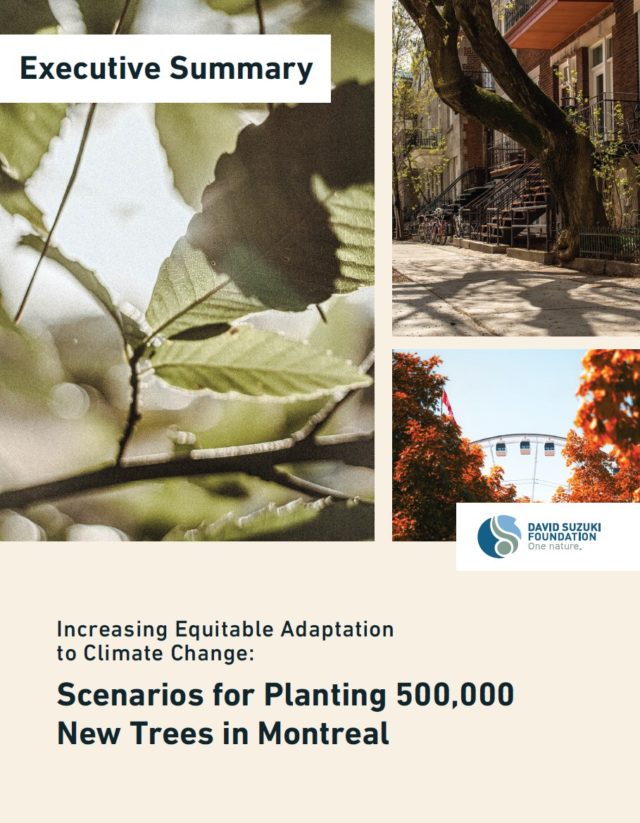Increasing Equitable Adaptation to Climate Change: Scenarios for Planting 500,000 new Trees in Montreal
Published by:
David Suzuki Foundation
Authored by:
Fondation David Suzuki et partenaires
Climate solutions, Cities land use, human health and wellbeing, climate change
Following the City of Montreal’s goal to plant 500,000 new trees on its territory by 2030, this study evaluates and proposes a planting strategy that optimizes equitable climate adaptation, while maximizing the long-term resilience of the urban forest and its benefits. The study answers three overarching questions associated with tree planting as a climate change adaptation strategy in cities:
- Where is it possible to plant within city boundaries?
- Where should planting be prioritized to address issues of social equity and climate change resilience?
- What tree species should be prioritized to ensure urban forest and ecosystem services sustainability?
The analysis is based on eight socio-economic and ecological criteria: vulnerability to five dominant climatic hazards, level of deprivation of inhabitants, canopy and tree functional diversity.
The methodology presented in this report is easily adaptable to the specific conditions and needs of different cities, and provides a planning tool for cities to plant the right trees in the right places to adapt to climate in an equitable and long-term manner.
